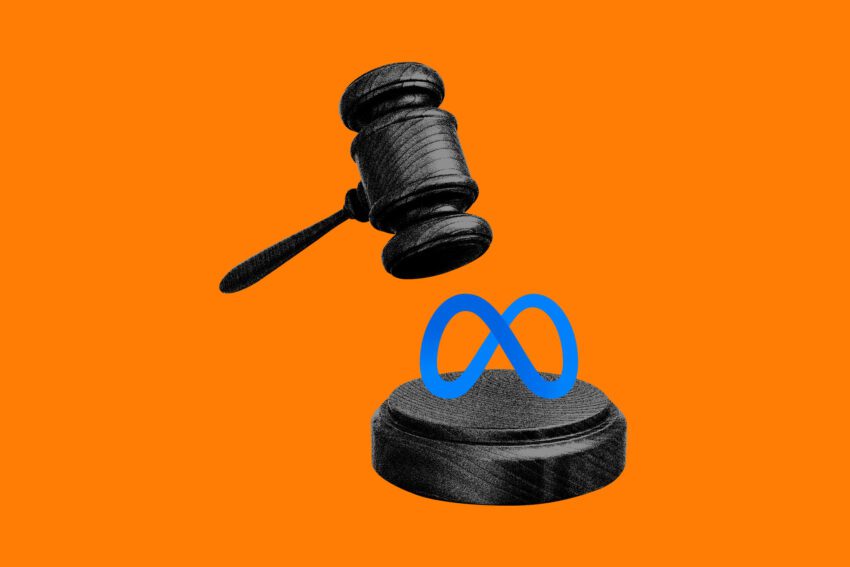
meta is not a monopolist judge rules Meta has achieved a significant victory in its ongoing legal battles with the Federal Trade Commission (FTC) after a federal judge ruled that the company does not hold a monopoly in the social media market.
meta is not a monopolist judge rules
Judge’s Ruling on Market Definition
On Tuesday, U.S. District Court Judge James Boasberg delivered a landmark decision stating that Meta has not unfairly monopolized the market for “personal social networking.” This category encompasses a limited range of social media applications, including Meta’s flagship platforms—Facebook and Instagram—as well as competitors like Snapchat. The ruling, which can be appealed by the FTC, means that Meta will not be compelled to divest its acquisitions of Instagram and WhatsApp, at least for the time being.
Challenges Faced by the FTC
Judge Boasberg pointed out that the FTC had been warned about the difficulties it would face in defining the relevant market and proving that Meta maintained an illegal monopoly. The judge emphasized that the FTC’s case was hampered by the rapidly evolving landscape of social media, particularly with the emergence of TikTok as a formidable competitor. “The landscape that existed only five years ago when the Federal Trade Commission brought this antitrust suit has changed markedly,” Boasberg wrote. He noted that the once-clear distinctions between different types of social media applications have become blurred.
Competition in the Social Media Landscape
The FTC’s argument centered around the claim that Meta had illegally maintained monopoly power by acquiring potential rivals like Instagram and WhatsApp. However, throughout the trial, the agency struggled to demonstrate that Meta still held this monopoly in light of the dynamic nature of social media. Judge Boasberg clarified that the government needed to prove not just past dominance but also current or imminent monopolization.
Shifting User Preferences
Judge Boasberg highlighted the fluidity of social media trends, stating, “With apps surging and receding, chasing one craze and moving on from others, and adding new features with each passing year, the FTC has understandably struggled to fix the boundaries of Meta’s product market.” He noted that the agency’s insistence on framing Meta’s competition within a narrow set of rivals from the past decade was not sufficient. The judge pointed out that the FTC needed to show that Meta continues to hold monopoly power today, a claim he ultimately found unsubstantiated.
Interchangeability of Social Media Apps
One of the pivotal aspects of the ruling was the judge’s assessment of the interchangeability of Meta’s apps with other platforms like TikTok and YouTube. The FTC attempted to argue that users engage with Meta’s platforms for distinct purposes compared to video-centric apps. However, Judge Boasberg was not convinced by this argument. He stated, “Meta’s apps are reasonably interchangeable with TikTok and YouTube.” This assertion was supported by evidence showing that users flocked to Meta’s applications during a temporary blackout of TikTok in the U.S. This behavior indicated that the FTC’s hypothesis regarding user engagement was consistently disproven by the data.
Debate Over YouTube’s Role
While Judge Boasberg found TikTok to be a clear competitor to Meta, he acknowledged that including YouTube in the personal social networking market was “more debatable.” This nuance illustrates how timing and context played a crucial role in the court’s decision. Even though the judge believed that YouTube might not serve as an appropriate substitute for Meta’s offerings, he concluded that the presence of TikTok fundamentally altered the competitive landscape, making it difficult for the FTC to argue that Meta maintained monopoly power.
Legal Precedents and Implications
Judge Boasberg had multiple opportunities to dismiss the case before it reached trial, including an initial dismissal of the FTC’s complaint. However, he allowed the agency to refile, indicating a willingness to thoroughly examine the evolving nature of both Meta’s platforms and its competitors. He noted, “The Court’s two Opinions on motions to dismiss did not even mention the word ‘TikTok.’ Today, that app holds center stage as Meta’s fiercest rival.” This acknowledgment of the shifting competitive dynamics underscores the complexities involved in antitrust litigation in the tech sector.
Reactions from Stakeholders
Following the ruling, Meta’s spokesperson, Jennifer Newstead, expressed satisfaction with the decision, stating, “The Court’s decision today recognizes that Meta faces fierce competition. Our products are beneficial for people and businesses and exemplify American innovation and economic growth. We look forward to continuing to partner with the Administration and to invest in America.”
Conversely, the FTC expressed disappointment in the ruling. FTC spokesperson Joe Simonson remarked, “The deck was always stacked against us with Judge Boasberg, who is currently facing articles of impeachment. We are reviewing all our options.” The mention of impeachment articles against Judge Boasberg, stemming from separate rulings related to the Trump administration, adds a layer of political complexity to the case.
Broader Context of Antitrust Actions
This ruling marks a second significant antitrust loss for the FTC against Meta. Previously, during the Biden administration, a court allowed Meta to finalize its acquisition of the virtual reality fitness startup Within, despite the FTC’s challenge. The agency ultimately chose not to appeal that decision. The FTC’s monopolization case against Meta was initially filed during the Trump administration, with an amended complaint submitted during the Biden administration. The trial took place earlier this year, showcasing the prolonged nature of these legal battles.
Mixed Results for Government in Tech Antitrust Cases
The government has had a mixed record in its recent antitrust cases against major tech companies. The Justice Department successfully won both of its monopolization cases against Google’s search and advertising businesses, although a judge did not grant most of the remedies sought in the search case. The closing arguments in the remedies phase of the ad tech case are scheduled for later this week, highlighting the ongoing scrutiny of major tech firms.
Future Implications for Meta and the FTC
The implications of Judge Boasberg’s ruling extend beyond this specific case. It raises questions about how antitrust law will adapt to the rapidly changing landscape of technology and social media. As new platforms emerge and user preferences shift, regulators may find it increasingly challenging to define relevant markets and establish monopolistic behavior.
Moreover, the ruling may embolden Meta as it continues to innovate and expand its offerings. The company has been investing heavily in virtual reality, augmented reality, and other emerging technologies, which could further diversify its business model and mitigate regulatory risks. Conversely, the FTC may need to reassess its strategies and focus on more contemporary competitive dynamics in the tech sector.
As the legal landscape continues to evolve, both Meta and the FTC will likely remain in the spotlight, navigating the complexities of competition, innovation, and regulation in an increasingly digital world.
Source: Original report
Was this helpful?
Last Modified: November 19, 2025 at 2:36 am
3 views















